

Hamish Bradley
Adjunct Lecturer, Anaesthetist and Aeromedical Retrieval Specialist, The University of Western Australia
Dr Hamish Bradley is an Anaesthetist, Aeromedical Retrieval Specialist and Clinical Hypnotist.
Less ![]()

Hamish Campbell
Professor - Spatial Science, Charles Darwin University
Professor Hamish Campbell is the Director of the North Australia Centre for Autonomous Systems. His research develops and applies novel technologies to integrative scientific theory to solve a range of problems in environmental science, the built environment, and livelihoods in Northern Australia.
Less ![]()

Hamish Crocket
Senior Lecturer, School of Health, University of Waikato
I am a senior lecturer in the School of Health, Equity and Innovation in the Division of Health at the University of Waikato
As a public health researcher my research aims to have positive impacts on the lives of people with diabetes. It is broadly focused on the role(s) of technologies in diabetes care, with three primary strands: User innovation, users’ experiences of diabetes technologies, and the role of technology in achieving equity of outcomes within diabetes care.
Less ![]()

Hamish Morrin
Veterinary Lecturer in Clinical Communication Skills, University of Central Lancashire
Less ![]()
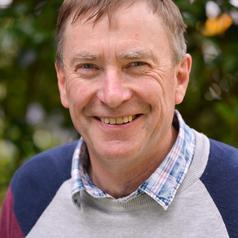
Hamish Wilson
Associate Professor in General Practice, University of Otago
I studied medicine at Otago University, then completed my Masters degree in General Practice in 2000. I work in clinical practice part-time, and have taught both undergraduate and medical students and postgraduate doctors at Otago Medical School since 1996.
I am the co-author of Wilson H, Cunningham W. Being a Doctor: Understanding Medical Practice, OUP, Dunedin, 2013, an innovative textbook of medicine for general practitioners and other doctors.
My research interests include (bio)medically unexplained symptoms, reflective practice, methods of professional maintenance and professional identity formation.
Less ![]()
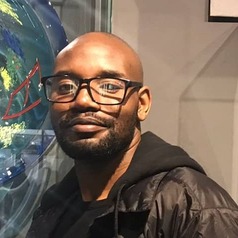
Hamond Motsi
PhD Student in Agriscience, Stellenbosch University
Hamond Motsi is a PhD student at the Faculty of Agrisciences, Stellenbosch University interested in sustainable agriculture and agricultural development in Africa. He writes as a columnist in diverse digital and physical news media on this subject in South Africa and Zimbabwe.
Hamond's research focuses on nature-based solutions to adapt and mitigate climate change with a particular focus on biofuels, soil organic amendments such as manure and biochar and forest restoration. Some of his work has been published in peer-reviewed articles.
Hamond holds an MSc in Agronomy (cum laude) from Stellenbosch University, BSc Hons in Crop Science, and BSc in Crop and Soil science (cum laude), both from the University of Fort Hare.
Less ![]()


Hanan Ali
Assistant Researcher, Housing Policy, Simon Fraser University
Hanan Ali works with the Community Housing Canada initiative. As a M.A. alumnus of SFU’s School for International Studies, her research interests cut across housing policy, comparative urban governance, social reproduction, place-making and the politics of belonging in city/neighbourhood spaces. She is interested in exploring the distinctive legal-spatial imaginaries that characterize Canada’s community housing sector, including those that inform the right to adequate, safe, and dignified housing. Her research examines various forms of precarious housing in Canadian cities, and the impact of financialization on housing rights.
Less ![]()
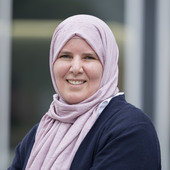
Hanane Benadi
Research Officer, Religion and Global Society, London School of Economics and Political Science
Less ![]()

Hang Khong
Teaching Associate, Faculty of Education, Monash University, Monash University
Hang Khong earned her Ph.D in teacher professional development at the University of Queensland in 2020. She has been involved in several funded research projects about pre-service and in-service teacher training across different contexts such as Vietnam, Indonesia, and Australia. Her research interests include teacher learning and professional development, initial teacher education, classroom talk, school and pedagogical reform, doctoral education, and education in Vietnam. She has jointly published papers in internationally renowned education journals such as Educational Review, Cambridge Journal of Education, Educational Research, Professional Development in Education, Education and Information Technologies, and book chapters under Routledge, Springer and ABC-CLIO. One of the papers was awarded Educational Review’s Most Read Article in ‘Literacy, Languages and Performing Arts’ stream in 2014.
Less ![]()

Hanna Carlsson
Associate professor in Library and Information Science, Linnaeus University
Hanna Carlsson is an Associate Professor of Library and Information Science at Linnaeus University, Sweden. Her research interests encompass the democratic role and agency of cultural institutions, with a particular focus on public libraries and library and cultural policy. She also has expertise in critical studies related to media and information literacy, as well as digital education's role in democracy.
She coordinates the Master's program in Library and Information Science at Linnaeus University and teaches media and information literacy, as well as cultural and library policy, at the Bachelor's level.
Less ![]()
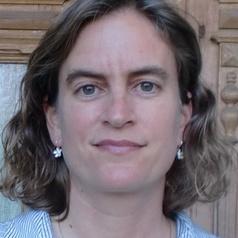
Hanna Wilberg
Associate professor - Law, University of Auckland
Hanna Wilberg is an Associate Professor in the Law School at the University of Auckland.
Her research interests lie mainly in two areas: administrative law and the tort liability of public authorities. She also has an interest in public law more generally, particularly statutory interpretation, Bill of Rights, discrimination and Treaty of Waitangi issues. She has published in leading UK and Australian journals and edited collections in these areas. In her administrative law work, one of her main objectives is to help increase the availability of scholarly analysis of New Zealand law in this area, informed by engagement with relevant overseas jurisdictions. In her work on tort liability of public authorities, she addresses an audience across the main common law jurisdictions.
She is currently writing a book on The Principles of Administrative Law in Aotearoa New Zealand, to be published by Hart in 2024. She is also the New Zealand Law Review’s contributor of scholarly reviews of recent developments in Administrative Law.
Hanna's new teaching initiative since 2021 is a course on Social Welfare Law, Policy and Action. This includes a clinical component, offering students the opportunity to write submissions on applications for review under the Social Security Act.
Before joining the Auckland faculty in 2004, Hanna taught at Southampton University in the UK. She was a research assistant to Professor Paul Craig at Oxford; a Judges' Clerk for Richardson P and Tipping, Blanchard, Keith, Thomas, Gault and Henry JJ at the Court of Appeal in Wellington; and practiced law at the Crown Law Office.
Less ![]()

Hannah Adler
PhD candidate, health communication and health sociology, Griffith University
Hannah Adler is a PhD candidate and member of the Centre for Social and Cultural Research at Griffith University. Hannah graduated with a First Class Honours in Communication from Griffith University in 2020, and she is expected to complete her PhD in 2024. Her research is interdisciplinary across communication and sociology, and her current PhD thesis investigates the framings of medicinal cannabis in Australian online news media, and the impact such framings have for doctors and patients. She is also currently working on other projects, including an interdisciplinary historical project on medicinal cannabis, and research on social media and endometriosis. Hannah also works as a health journalist, and teaches a variety of courses at Griffith University in the Bachelor of Communication and Journalism. As well as being a member of the Griffith University Centre for Social and Cultural Research, she is a member of the Menstrual Health Research Network, and in 2020 was awarded the Griffith University Medal along with her Honours
Less ![]()


Hannah Andrews
Associate Professor in Film and Media, University of Lincoln
I'm a researcher, writer and teacher specialising in teaching film, TV and media. I've published widely on aesthetic and institutional relationships between film and television, on biographical television programming, and on television representations of real people in drama and comedy. My current project is on televisual caricature - that is, exaggerated, comedic depictions of real individiuals for television. I've taught and supervised a range of subjects in film, television and media, including television history, film and television analysis, media aesthetics, media and creative industries and research methods.
Less ![]()

Hannah Brown
Post-doctoral Fellow; Reproductive Epigenetics, University of Adelaide
Dr Hannah Brown is a researcher at the Robinson Research Institute and Centre for Nanoscale Biophotonics, at the University of Adelaide, Australia. Her research explores the mechanisms underlying how stress during early pregnancy alters the epigenome of the embryo, and causes detrimental, long-term outcomes.
Less ![]()

Hannah Brown3
Professor of Anthropology, Durham University
I'm a Professor of Anthropology. I trained as a social anthropologist with specialisation in medical anthropology. My research interests include: economies and practices of care; governance; the state; nursing; hospitals; global health interventions (especially around HIV/AIDS and viral haemorrhagic fevers); epidemics; development; community-based health care; and public health.
My current research work is funded by an ERC starting grant, AliveAFRICA: Animals, Livelihoods and Wellbeing in Africa. This project explores changing animal-based economies in Kenya and Sierra Leone, and the implications of human-animal entanglements for health and well being.
Less ![]()

Hannah Calverley
Adjunct Research Fellow, Centre for Alcohol Policy Research, La Trobe University
Hannah Calverley (PhD) is an Adjunct Research Fellow at the Centre for Alcohol Policy Research, La Trobe University.
She is also Manager, Research and Evaluation, Life Saving Victoria.
Her research interests include water safety, and the role of alcohol and risk taking behaviours.
Less ![]()

Hannah Chisholm
Epidemiologist, University of Auckland
PhD in epidemiology. Thesis topic was pertussis vaccine failure in New Zealand children
Less ![]()

Hannah Cross
Postdoctoral Research Associate, University of Manchester
I'm a postdoctoral research associate working in the Division of Psychology, Communication and Human Neuroscience at The University of Manchester. I research hearing loss in people with dementia living in care homes and in the community. Currently, I am investigating how common hearing loss is in people with dementia and how accessible hearing assessments and audiology services are for people with dementia. Prior to this, I completed my PhD on hearing loss within care homes and how to improve hearing care provided to residents with dementia. I worked with Rebecca Millman, Piers Dawes, Christopher Armitage and Iracema Leroi on this project.
I have a degree in Psychology and previously worked in care homes as a care assistant.
Less ![]()

Hannah Daly
Professor in Sustainable Energy, University College Cork
I am a Professor in Sustainable Energy at University College Cork. I lead a team of researchers who analyse future pathways for the energy system compatible with steep reductions in greenhouse gas emissions necessary to address climate change. I communicate extensively on the topic of climate action in Ireland, writing a monthly column, At A Time Of Climate Crisis, for the Irish Times, and I engage with and advise government, civil society and industry on decarbonisation.
I previously worked at the International Energy Agency (IEA), leading the topic of energy development for the World Energy Outlook (WEO), and at the UCL Energy Institute, developing the UK TIMES Model (UKTM) and helping bring about its adoption by the (former) Department for Energy and Climate Change as the central energy systems tool for the UK government.
Research interests:
Energy Systems Optimisation Modelling (ESOM) - TIMES
Climate change mitigation policy
Carbon budget policy
Energy policy scenarios
Global Integrated Assessment Models
Energy access, clean cooking and SDG 7
Less ![]()

Hannah Earp
Postdoctoral Research Associate, Marine Ecology, Newcastle University
I am a marine ecologist at Newcastle University (UK). My research involves investigating the structure of kelp forest and mud flat ecosystems and understanding how they are changing in response to climate stressors and human activities, alongside developing/testing techniques to restore these vital ecosystems. I am also interested in understanding how artificial structures in marine environments influence biodiversity and how we can enhance these structures to promote marine life.
Less ![]()

Hannah Fawcett
Senior Lecturer in Psychology, Manchester Metropolitan University
I am a Senior Lecturer in Psychology and the Undergraduate Psychology Programme Leader at Manchester Metropolitan University.
My current research focuses on juror wellbeing and decision making.
My research interests lie in the provision of witness evidence. I am particularly interested in how evidence is provided in court, and the way in which jurors understand, evaluate and use evidence in their decision making process.
I have provided expert consultancy to a number of charities and organisations on the themes of witness and offender behaviour. For example, I have completed consultancy work for the charity InsideJustice examining potential false convictions in the UK criminal Justice System. Previous consultancy work involved working with the British Transport Police in the development of stop-and-search and counter-terrorism police training courses.
Less ![]()

Hannah Foley
PhD Candidate, University of Tasmania
I am an interdisciplinary artist and researcher based in nipaluna/Hobart. My process and research-driven practice considers the phenomenological and relational body; incorporating performance, installation, and sound, each work begins with embodied processes of gestural and lived investigation.
I completed a Bachelor of Fine Arts with Honours (1st Class) at the University of Tasmania in 2021, where I received a University Medal. I am now undertaking doctorate research, drawing on hydrofeminist theory to generate modes of performing and scoring encounters with more-than-human bodies of water. Outside of my own practice, I have been an active board member of Constance Artist Run Initatiative (ARI) since 2020, through which I have facilitated and curated multiple exhibitions and arts projects.
Less ![]()
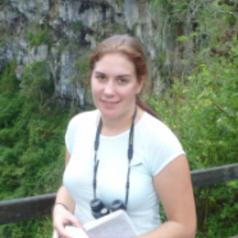
Hannah Fraser
Postdoctoral Researcher , The University of Melbourne
I am a Post-doctoral researcher working with Fiona Fidler in the School of BioSciences at the University of Melbourne. My time is split between two very interesting and very different projects SWARM and Research on Research.
The Research on Research project involves working on a range of projects aimed at understanding and redressing the reproducibility crisis. I am specifically interested in trying to improve reproducibility in ecology and related fields. At the Ecological Society of America 2017 conference Ashley Barnett and I presented a poster on the rates of questionable research practices in Ecology and Evolutionary Biology. The paper will hopefully be in the literature before too long but in the mean time, the headline is that we use questionable research practices a lot….but that’s the same as psychology researchers. The next thing on my list is working out how successful the Transparency and Openness Protocol (TOP) guidelines have been in increasing the openness of publications.
The SWARM project aims to advance collaborative reasoning. There are two branches of this work: one involves developing an online interface to assist group collaboration, the other involves conducting experiments on reasoning and group work to help inform the online interface. I’m involved in the latter and am currently trying to understand how anchoring and production loss are likely to influence the answers group members give in collaborative reasoning tasks
My training is in ecology. I submitted my PhD in January 2017 as part of the Quantitative and Applied Ecology Group, based in the School of BioSciences at the University of Melbourne. During my PhD I investigated uncertainty around ‘woodland birds’; how we classify them, why we classify them differently, how this effects our conclusions and what we can do about it. I was lucky to have supervision from Mick McCarthy, Libby Rumpff and Cindy Hauser from Melbourne Uni and Georgia Garrard of RMIT University.
I began my PhD in 2013 with a thirst to save the environment. However, working around researchers doing ground breaking research changed my perspective slightly. The knowledge that goes into these researchers’ work is phenominal and has the potential to provide important ecological insights but so often the work falls short of being used. I see it as my mission to make sure that the (fantastic) research these people are doing is as useful as it can possibly be.
In my ‘free time’ I put together a nomination to list the Temperate and Sub-tropical Woodland Bird Threatened Ecological Community as a Threatened Ecological Community under the Environment Protection and Biodiversity Conservation Act, working closely with researchers from all over Australia.
Less ![]()

Hannah Grist
Senior Lecturer in Academic Development, University of Bristol
My research interests lie in the use and value of qualitative research methods, particularly reflective methods and autoethnography for exploring complex and sensitive topics. My primary research areas are learning and teaching in Higher Education and Ageing Studies/Cultural Studies. I am co-director of the Centre for Women, Ageing and Media. I have published and presented on cultural representations of age and ageing, on care homes and care work, and on teaching and learning in Higher Education.
Less ![]()

Hannah Holmes
Dean and Deputy Pro Vice Chancellor in Business and Law, Manchester Metropolitan University
Hannah is Dean and Deputy Pro Vice Chancellor in Business and Law at Manchester Metropolitan University, leading one of the largest Faculties in the UK. Hannah works in inclusive and collaborative ways and is passionate about helping drive and deliver change which makes a positive contribution to society.
Less ![]()

Hannah Jackson
University of Technology Sydney
Hannah Jackson is a PhD Candidate at the University of Technology Sydney where she is working to improve efficiency and equity in medication use during pregnancy. Hannah has a Bachelor of Pharmacy and a Master of Public Health.
Less ![]()
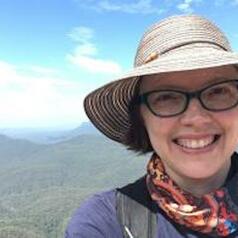
Hannah Johnson
Professor of English, University of Pittsburgh
Hannah Johnson is Associate Professor of English and affiliated faculty with the Collaboratory Against Hate, and Programs in Medieval and Renaissance Studies and Jewish Studies. She works primarily on the history of antisemitism, forms of exclusionary rhetoric, intellectual history, Jewish-Christian relations, religious literature, and the history of gender. She is an avid supporter of Pitt’s Study Abroad programs, having taught students in London, York, and Sydney over the years. Johnson regularly teaches courses on conspiracy theories, historical witchcraft accusations, and the fairy tradition, among other topics.
Johnson is currently with working with Simone Marshall, of the University of Otago, to complete an academic trade book titled The First Era of Fake News: Witch-Hunting, Antisemitism and Islamophobia. She was awarded a Fulbright Fellowship to support this work, to begin in January 2022 in New Zealand. Early research on this project took place under the aegis of a distinguished short-term fellowship from the Arizona Center for Medieval and Renaissance Studies. The First Era of Fake News is an accessible introduction to the historical use of damaging rhetoric to isolate and persecute specific outgroups during the medieval and early modern periods of European history. Working within a venerable tradition of public scholarship, the work will present a synthetic account of recent historical, social-psychological, and narratological insights from the study of the disparate threads of anti-Jewish and anti-Muslim rhetorics and the misogynist history of the early modern witch hunts. The First Era of Fake News will explore the patterns and dangers of persecutory rhetoric through scholarly exposition, evocative narrative, and accessible breakdowns of critical terms and concepts. This volume functions as a guide for identifying and deconstructing violent rhetorics of exclusion, offering readers tools for thinking critically about such rhetoric as it appears in our contemporary moment, in part by demystifying the relationships between stories and legends people told one another in the past, and narratives we often hear reflected in representations of outgroups in the present.
Johnson’s previous book, completed with the support of a fellowship from the American Council of Learn Societies and co-authored with Heather Blurton, is The Critics and the Prioress: Antisemitism, Criticism and Chaucer’s Prioress’s Tale (Michigan, 2017). This work re-examines the critical history of Chaucer’s most controversial Canterbury tale, highlighting how scholarship on The Prioress’s Tale has been fundamentally shaped by various impasses resulting from critics’ struggles with the poem’s repetition of a damaging antisemitic legend. Surveying both the history of criticism and the state of the field, The Critics and the Prioress attempts to chart productive new avenues for research using the tools of intellectual history, a new vision of source studies, and the resources of aesthetics, gender studies, and the history of the book.
Johnson’s first monograph, Blood Libel: The Ritual Murder Accusation at the Limit of Jewish History (Michigan, 2012), examines the underlying ethical commitments that have historically structured academic investigations of a libelous historical myth, originating in the Middle Ages, that Jewish communities murder Christian children. Examining one of the earliest examples of such a legend, the twelfth-century account of the death of William of Norwich, Johnson highlights how juridical questions of guilt and innocence, crime and libel, have structured the conversation surrounding this legend from the beginning and have had profound effects on the generations of scholars who have taken up these controversial myths.
Her work has been funded by the Fulbright Foundation, American Council of Learned Societies, Hewlett Foundation, Beinecke Foundation, and others. She co-edited a special issue of the journal postmedieval with colleague Nina Caputo on “The Holocaust and the Middle Ages.”
Less ![]()
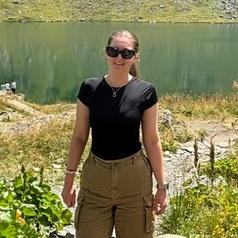
Hannah Lacy
PhD Candidate, Faculty of Biological Sciences, University of Leeds
PhD Candidate based in the Faculty of Biological Sciences at the University of Leeds researching the spatial ecology of common hippos across southern Africa. Interested in African large mammal conservation, terrestrial ecology, anthropogenic environmental disturbance, and employing quantitative and computational modelling and statistical approaches to address conservation challenges.
Previous qualifications include a BSc (Hons) in Wildlife Conservation (First Class) and an MSc in Wildlife Conservation Technology (Distinction) from Liverpool John Moores University.
Less ![]()
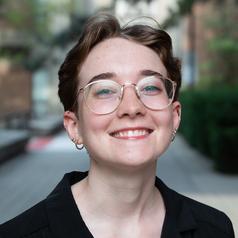
Hannah Maitland
PhD Candidate in the Department of Gender, Feminist, and Women's Studies, York University, Canada
My name is Hannah and I live and work on Treaty 13 territory in Tkaronto, where I'm a Ph.D. Candidate in the Gender, Feminist, and Women’s Studies Department at York University. I am a feminist researcher and emerging Girls' Studies scholar who researches girl activists, their politics, and their relationships with their mothers and mother figures.
My other research areas include youth activism, sex education, and sex education controversies. Beyond my research, I am the co-founder of the Ontario Digital Literacy and Access Network (ODLAN), producer for the Resisting the Script and the Sexuality Studies Spotlight podcasts and involved with other organizations and projects that help foster intergenerational relationships in 2S-LGBTQ+ communities. You can find some of my writing in Sex Education and Shameless Magazine.
Less ![]()

Hannah Mason
Research assistant, James Cook University
Miss Hannah Mason is a lecturer, researcher, and HDR student at the College of Public Health, Medical, and Veterinary Sciences at James Cook University.
Hannah has worked on a broad range of public health and safety research projects, including exploring the impact of heatwaves on health systems, arc flash safety, mobile plant safety, and rural road safety.
Hannah’s research interests include health systems management, climate resilience, and rural and remote health.
Less ![]()

Hannah McDowell
Doctoral Student, Clinical Psychology, L’Université d’Ottawa/University of Ottawa
Hannah is a PhD student in the Clinical Psychology program at the University of Ottawa, where she is a member of the Early Lab and is under the supervision of Dr. Racine. She holds an Honours Bachelor of Arts in Psychology from the University of Ottawa, a Master of Arts in Experimental Psychology from Brock University, and an Honours Diploma in Child and Youth Counselling from Humber College. Hannah’s research focuses on the impact of maternal trauma on child development, parenting, attachment, and adverse childhood experiences.
Less ![]()
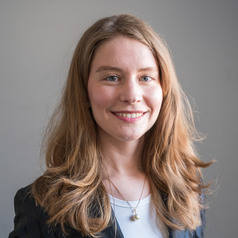
Hannah Orban
Associate Disability Program, Grattan Institute
Hannah Orban is an Associate in Grattan’s Disability Program. Hannah advocates for the equality of people with disability through evidence-based public policy that is led by the disability community. She brings her experience as a sibling to people with disabilities to her work, as well as her professional experience in the government and non-profit sectors.
In Washington D.C., Hannah worked alongside leaders in disability policy in the U.S. as the Eileen Sweeney Graduate Intern in Disability Policy with the National Academy of Social Insurance, and the Century Foundation’s Disability Economic Justice Team. Previously, Hannah worked as a research assistant in economics at the University of Michigan, and in public and disability policy in the NSW Department of Education.
Hannah has a Master of Public Policy from the Gerald R. Ford School of Public Policy, the University of Michigan, where she studied as a Fulbright scholar. She holds a Bachelor of Arts (First Class Honours) in Philosophy from the University of Sydney.
Less ![]()
- Market Data























